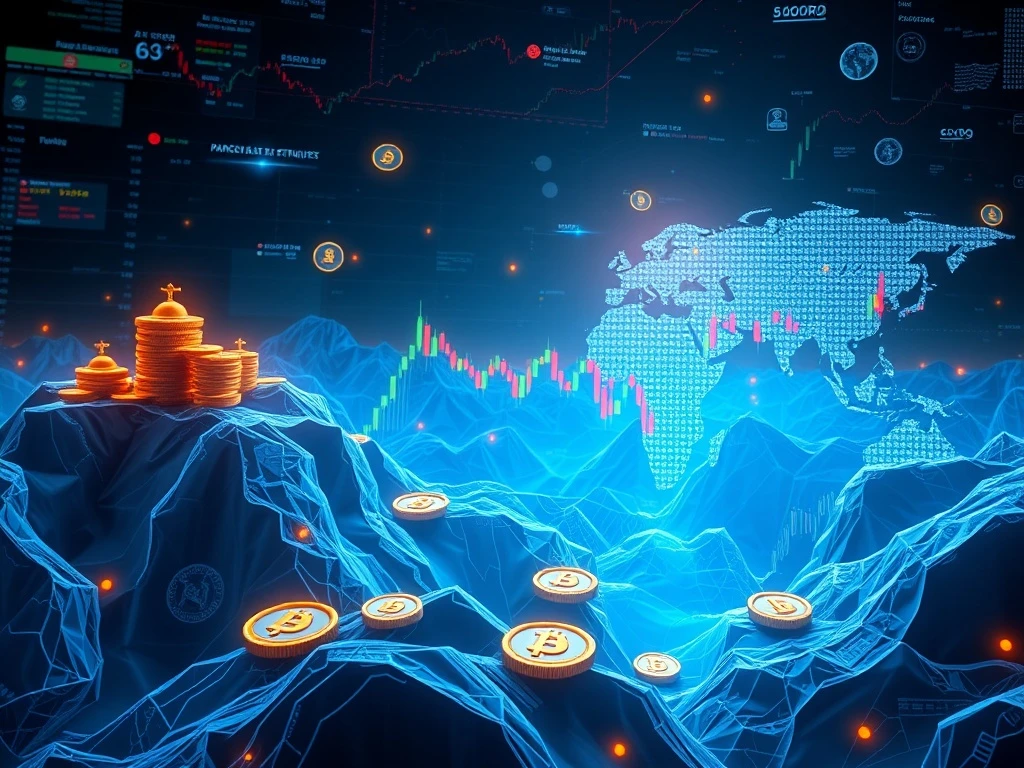Revolutionary Tokenized Equities: Kraken Exec Urges Focus on Accessibility and Programmability Over Wall Street Replication

Imagine a world where trading stocks is as seamless as sending a text message—no intermediaries, no borders, just pure financial freedom. That’s the future Kraken’s Mark Greenberg envisions with tokenized equities. In a bold statement, Greenberg argues that merely replicating Wall Street on a blockchain misses the point. Instead, the focus should be on accessibility, programmability, and global reach. But what does this mean for investors and the future of finance?
Why Tokenized Equities Need to Break Free from Wall Street
Tokenized equities represent a paradigm shift in how we think about financial assets. According to Greenberg, the goal isn’t to digitize existing systems but to rebuild them from the ground up. Here’s why:
- Accessibility: Enable real-time global trading for retail investors.
- Programmability: Allow developers to build innovative applications, similar to DeFi protocols.
- Global Reach: Operate like the internet—always on and borderless.
Kraken’s xStocks: A Glimpse into the Future
Kraken’s recent launch of xStocks, in partnership with Backed Finance, exemplifies this vision. The platform allows users to trade tokenized shares of companies like Netflix and Meta on exchanges such as Kraken, Bybit, and Solana-based DeFi protocols. Key features include:
| Feature | Benefit |
|---|---|
| Permissionless Systems | Decentralized access without sacrificing regulatory compliance. |
| Composability | Assets can be integrated into other DeFi applications. |
The Regulatory Challenge: Balancing Innovation and Compliance
Greenberg acknowledges that regulation must evolve to support this new financial infrastructure. “Regulation should evolve to support this balance, not suppress it,” he says. This sentiment is echoed by industry efforts, such as Ethereum-aligned groups engaging with the SEC to establish standards for tokenized securities.
Competition Heats Up: eToro vs. Kraken
The race to tokenize equities is intensifying. While Kraken focuses on Solana-based solutions, eToro plans to tokenize 100 U.S. stocks on Ethereum. This competition underscores the broader industry trend toward redefining financial participation through blockchain technology.
Conclusion: A New Era for Financial Markets
Tokenized equities have the potential to democratize finance, but their success hinges on regulatory clarity and the ability to balance decentralization with compliance. As Greenberg puts it, “This isn’t just about wrapping old assets in new tech.” It’s about building a financial system that’s as fluid and programmable as the cryptocurrencies we know today.
Frequently Asked Questions (FAQs)
1. What are tokenized equities?
Tokenized equities are traditional stocks represented as digital tokens on a blockchain, enabling faster, borderless trading.
2. How does Kraken’s xStocks work?
xStocks allows users to trade tokenized shares of companies on Kraken and other platforms, leveraging Solana-based DeFi protocols.
3. What are the benefits of programmability in tokenized equities?
Programmability enables developers to create innovative financial applications, similar to DeFi protocols, enhancing liquidity and accessibility.
4. How does regulation impact tokenized equities?
Regulation must adapt to support decentralized systems while ensuring investor protection, a key challenge for the industry.







